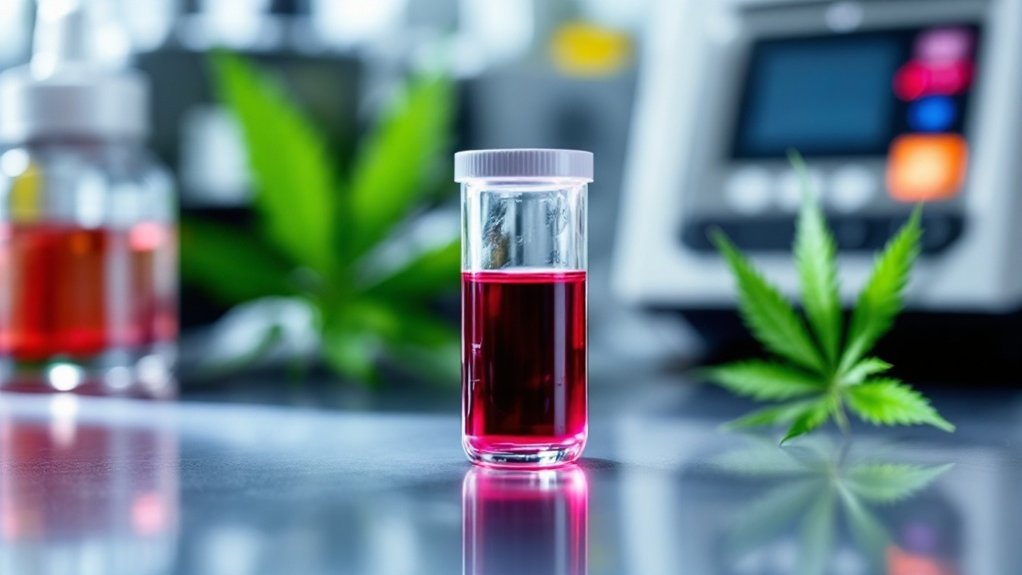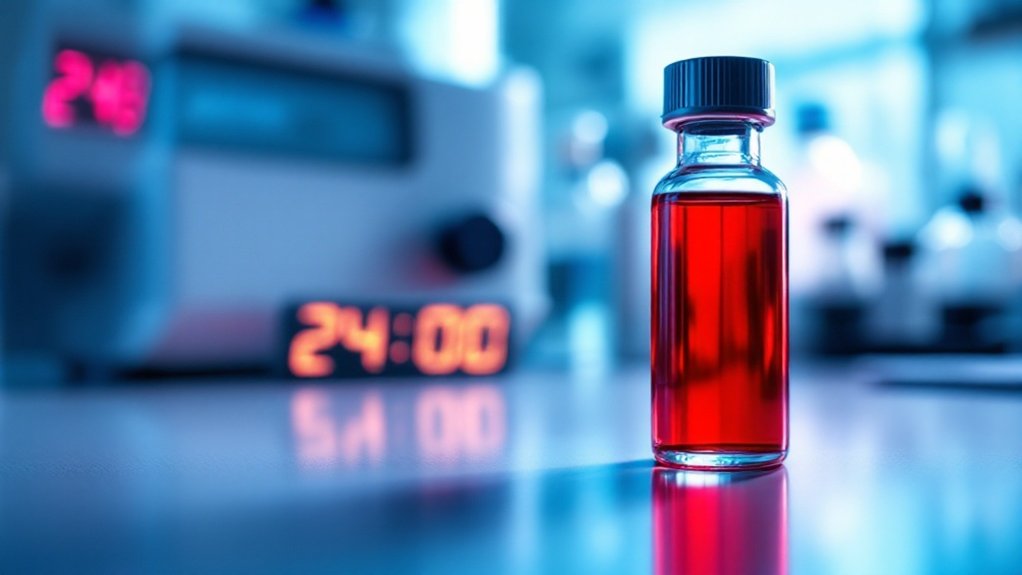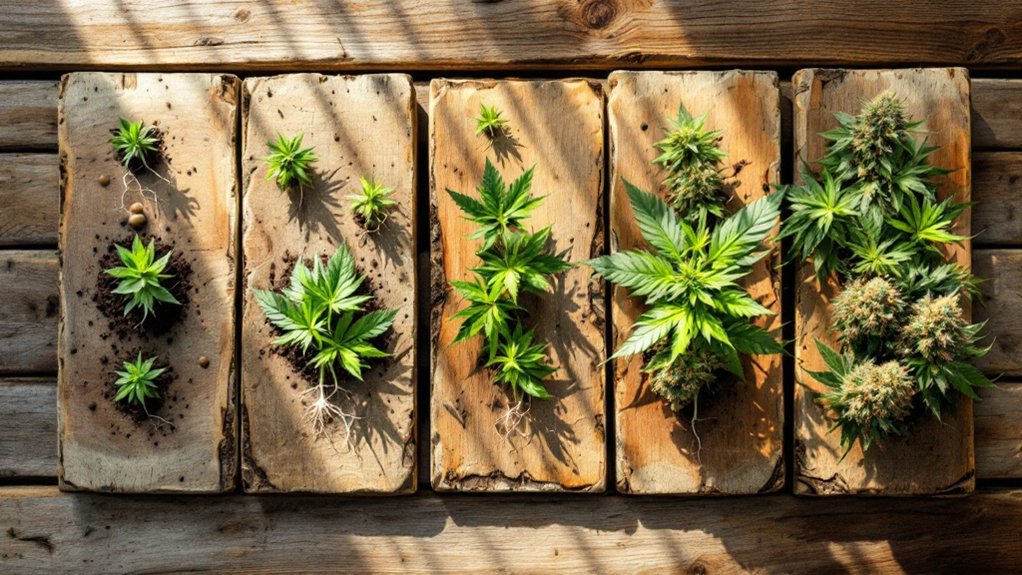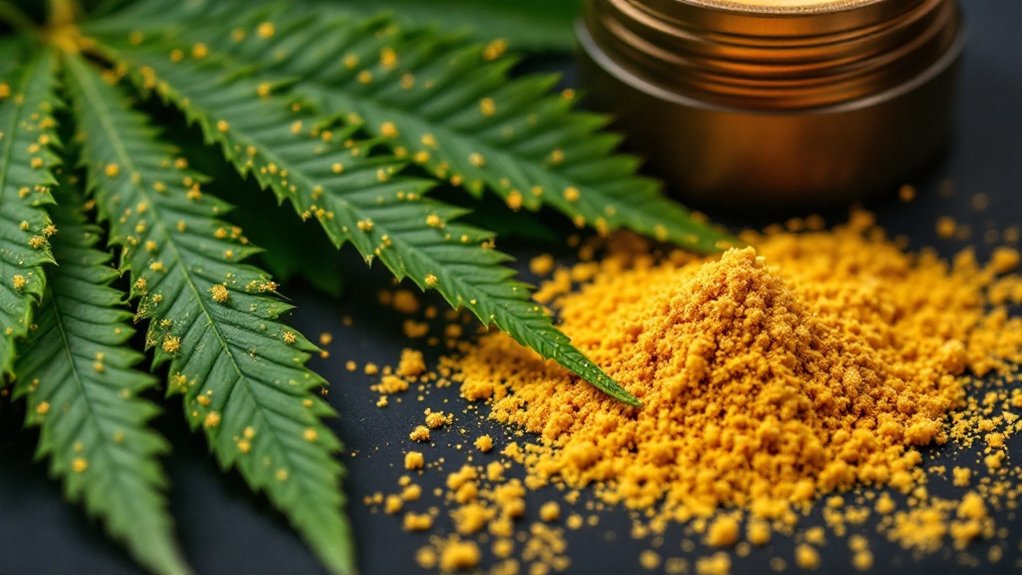Yes, THC absolutely shows up in blood tests. Occasional users typically test positive for 1-24 hours after smoking, while chronic users might show positive results for over a month. Blood tests are particularly good at measuring active impairment. They’re remarkably accurate too, with virtually no false positives reported in studies. Your metabolism and the potency of what you smoked will affect exactly how long you’ll test positive.

While blood tests are often considered the gold standard for detecting recent cannabis use, the window for catching THC in your bloodstream is surprisingly brief. Most blood tests can only detect cannabis compounds for about 2-24 hours after use. That’s right—just a day at most for the average user. Pretty slim pickings for anyone hoping to catch someone’s weekend activities on a Monday morning drug test.
Blood tests may be reliable, but THC is nearly undetectable in just 24 hours for most users. Hair, on the other hand can test positive up to 90 days.
But don’t get too comfortable. The story changes dramatically for chronic users. Heavy cannabis consumers inadvertently turn their fat cells into THC storage units. The body literally stockpiles the stuff. This biological quirk means frequent users can test positive for considerably longer periods—some research suggests even beyond 30 days. Blood tests are among the least effective methods for detecting past use since they primarily target active THC compounds.
The numbers tell a clear story. In controlled studies, a whopping 77% of heavy users tested positive while only 39% of occasional users showed THC in their blood. Not exactly a coin flip for either group.
Blood tests have distinct advantages over other methods. They’re more accurate than urine samples for determining recent use and active impairment. False positives? Rare. Studies found zero non-users accidentally flagged positive.
Hair tests might catch your cannabis use from three months ago, but blood tests are all about the here and now. Test sensitivity matters immensely. Most authorities consider THC levels above 3.5-5 ng/ml as potential evidence of impairment. The testing equipment’s specificity determines exactly which cannabinoid metabolites get detected. Less specific methods cast a wider net.
Individual factors play a vital role too. Your personal metabolism speed, the potency of the cannabis consumed, and exactly how long before testing you partook all affect results. THC is initially absorbed by the bloodstream when cannabis is smoked or ingested, where it undergoes liver metabolism before excretion. Blood testing remains the preferred method for determining active impairment rather than historical use. For detecting cannabis, blood doesn’t lie—but it doesn’t have a very good memory either.
Frequently Asked Questions
Can Secondhand Cannabis Smoke Cause a Positive Blood Test?
Secondhand cannabis smoke can indeed trigger positive blood tests, but don’t panic yet.
It typically requires intense exposure in poorly ventilated spaces—not your average passing whiff.
Studies show detectable THC levels from passive inhalation rarely reach standard testing thresholds.
Detection windows are short too, usually under 24 hours.
False positives? Possible. Common? Hardly.
Your defense of “I just stood near someone smoking” isn’t completely bogus.
Do CBD Products Trigger Thc-Positive Blood Results?
CBD products can indeed trigger THC-positive blood results. Many “THC-free” products actually contain trace amounts—especially full-spectrum varieties.
Blame poor regulation and inconsistent manufacturing. The THC builds up with regular use, eventually crossing detection thresholds.
Blood tests have a shorter detection window than urine or hair tests, but they’re still sensitive enough to catch that contamination.
CBD isolates pose less risk, but nothing’s guaranteed in this Wild West market.
How Does Hydration Affect THC Blood Test Results?
Hydration levels can dramatically skew THC blood test results.
Pretty simple science, really. Dehydration concentrates THC metabolites, potentially pushing borderline cases into positive territory.
Well-hydrated individuals? Their THC levels appear more diluted. It’s a numbers game.
That’s why proper testing protocols monitor creatinine levels alongside THC metabolites. Your water intake the day before testing matters. A lot.
Science doesn’t care about excuses, just chemistry.
Can Certain Medications Cause False Positive THC Blood Tests?
Yes, several medications can trigger false positive THC results in blood tests.
Proton pump inhibitors like Protonix and Prilosec are notorious culprits.
Psychiatric meds aren’t innocent either—antidepressants including bupropion and trazodone have been linked to false positives.
Even common NSAIDs like ibuprofen can mess with results.
Lab errors happen too.
Pretty inconvenient when your acid reflux medication makes you look like a stoner.
Does Body Weight Influence How Long THC Remains Detectable?
Body weight absolutely influences THC detection periods.
Fat cells are like little storage lockers for cannabis compounds—more body fat means more hiding places. Heavier individuals typically store THC metabolites longer.
Simple biology, folks. The fat-soluble nature of these compounds means they cling to adipose tissue, releasing gradually over time.









